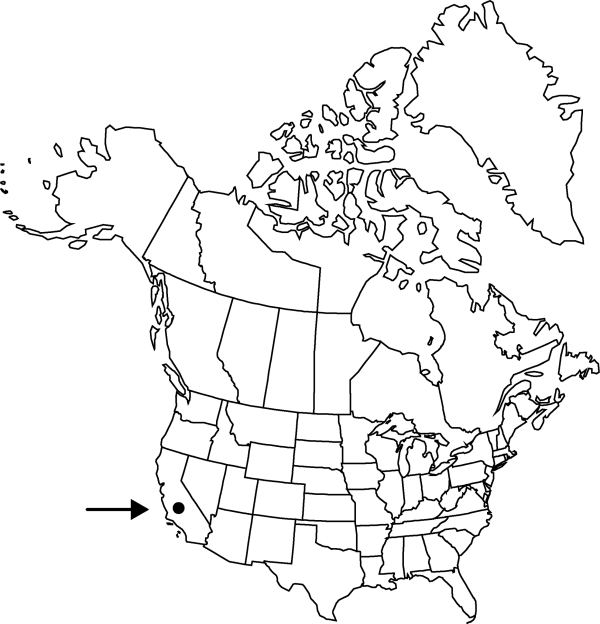Atriplex parishii var. subtilis
Rhodora 102: 423. 2001.
Stems erect, much branched, 1–3 dm, densely scurfy; branches opposite, often purple-reddish, neither ribbed nor striate; internodes 5–15 mm. Leaves mostly opposite, sessile; blade ovate-triangular to broadly ovate, 2–4 × 1–3 mm, mostly cordate-clasping, densely scurfy on both sides. Flowers of both sexes intermixed in axillary glomerules, but sometimes staminate clustered toward apex. Fruiting bracteoles persistent, deltoid, 2.4–2.8 mm and wide, margin with 1–3 pairs of irregular teeth, proximalmost usually larger and retrorse, apex shortly acuminate, with 2 longitudinal rows of tubercles on 1 or both surfaces. Seeds dark-brown.
Phenology: Flowering late spring–fall.
Habitat: Saline depressions, often within or later growing in depressions of vernal pools
Elevation: 40-100 m
Distribution

Calif.
Discussion
Of conservation concern.
Atriplex depressa var. subtilis occurs with Allenrolfea occidentalis, Distichlis spicata, Centromadia pungens, Suaeda Moquin-Tandonii, Spergularia macrotheca, Frankenia salina, and Sporobolus airoides and other Atriplex spp. Stutz and Chu compared this variety with Atriplex depressa, with whose more northern range in the Central Valley it is contiguous. The leaves are relatively small and the stems are thin. Plants of var. subtilis appear very much like an elongated, gracile form of var. parishii.
Selected References
None.
Lower Taxa
"/2" is not declared as a valid unit of measurement for this property."dm" is not declared as a valid unit of measurement for this property."/2" is not declared as a valid unit of measurement for this property."broader" is not a number. "broad" is not a number. "broader" is not a number. "broad" is not a number."wide" is not a number.